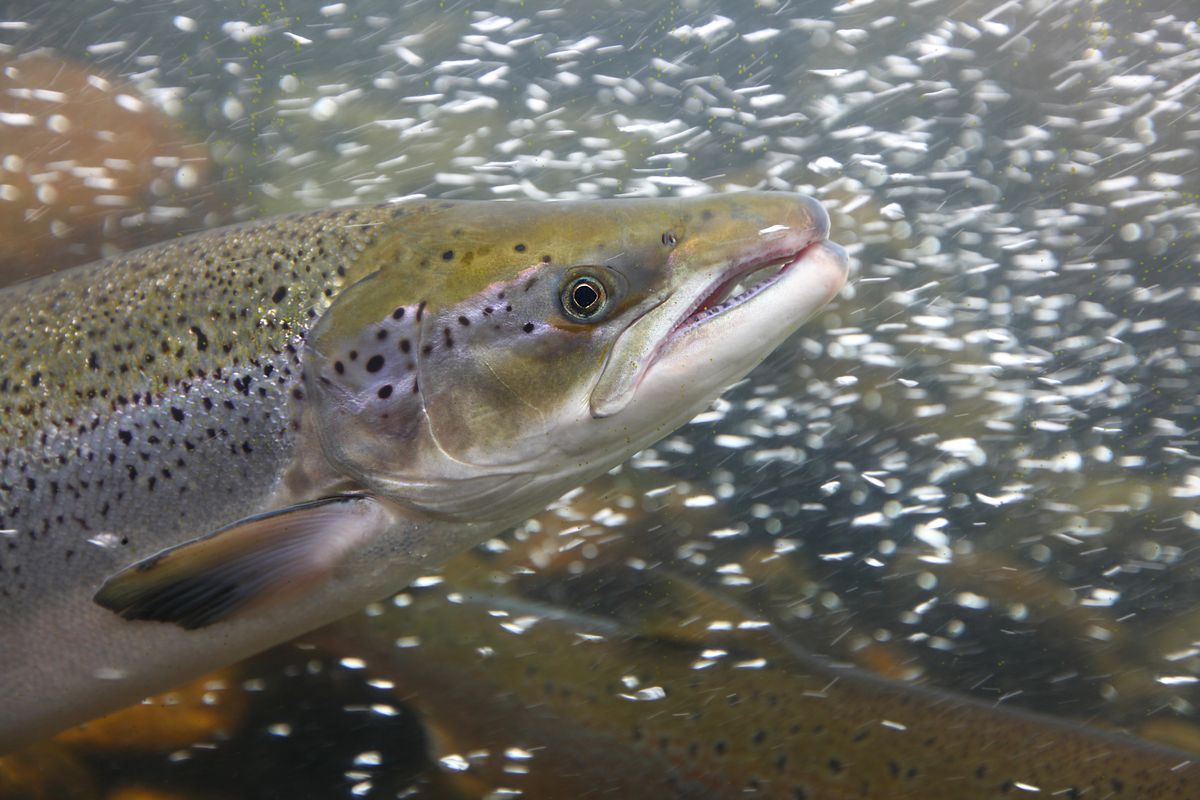Major announcement means bright future for salmon and clean energy

A salmon homecoming long in the making, and proof that tribes and not-for-profit utilities can work together collaboratively. That message was at the heart of the announcement between the U.S. Government, the Confederated Tribes of the Colville Reservation, the Coeur d’ Alene Tribe, and the Spokane Tribe of Indians is another important step in demonstrating hydropower and salmon can thrive together.
Nearly a century ago, the Grand Coulee and Chief Joseph dams were built without fish passage systems, which resulted in upper river tribes being cut off from access to a critical source of First Foods and the center of their economies and way of life. Since then, the benefits of Columbia River federal hydroelectricity have generally flowed downstream to more than three million ratepayers in Washington state, Oregon, Idaho, Montana, Wyoming, and Nevada. The Pacific Northwest continues to benefit enormously from our dams and their affordable, carbon-free power supply. Those benefits are even more important as we work to decarbonize our electric grid.
Now it is time for us to look to the future and extend those benefits.
We believe studying salmon reintroduction above these blocked areas is the right thing to do. Reintroduction has the potential to create hundreds of miles of upstream habitat for salmon and responds to important tribal partnerships and commitments. And it does so without negatively impacting the federal hydropower system our region relies on for affordable, carbon-free energy[ME1] .
This agreement is genuinely a win-win outcome for salmon as well as those who rely on the hydropower system and should serve as a model to resolve other disputes.
Northwest RiverPartners’ board of directors visited the Upper Columbia United Tribes (UCUT) in Spokane in April of this year to learn more about the UCUT proposal. The “Phase 2 Implementation Plan” lays out the groundwork to scientifically study reintroduction of salmon above Chief Joseph and Grand Coulee dams.
The Northwest RiverPartners’ board unanimously supports the study. We look forward to partnering with the UCUT members to explore ways to pay for this important project, augmenting the $200 million in ratepayer dollars the Bonneville Power Administration has committed.
Because here in the Pacific Northwest, water is our power and salmon are essential.
As an organization representing many community-owned utilities, Northwest RiverPartners recognizes that energy policy is complicated. It’s complex because energy touches so many different aspects of our lives, from climate change to social equity, jobs, ecosystems, and even public safety. Getting energy policy right requires a deep dive into all of its impacts.
Hence our support for the UCUT study.
Speaking of studies, a recent study by Stanford University researchers underscores how important the future generation of hydroelectricity is going to be for the Pacific Northwest.
The Stanford University study looked at how droughts can impact CO2 emissions in the Western U.S. It showed that, unlike California, the PNW can expect more precipitation in the future, not less, under likely climate change scenarios.
While that is heartening, the Stanford researchers discovered something else really interesting: Because wind and solar power are “intermittent,” meaning they produce electricity sporadically, hydropower cannot be replaced by those power sources.
The Stanford study determined that if hydropower isn’t available, natural gas and coal generation will increase dramatically, even with “aggressive” buildouts of wind and solar.
In short, reductions in hydroelectricity generation mean replacement with fossil fuels, which is one of the reasons our organization advocates strongly for preserving the lower Snake River dams.
Any addition in fossil fuels has the potential to harm the important reintroduction of the salmon that have been missing from the Upper Columbia River for far too long.
John Francisco is the assistant general manager for Big Bend Electric Cooperative, a consumer-owned, nonprofit cooperative in southeast Washington. John is also a member of Northwest RiverPartners’ board of directors.